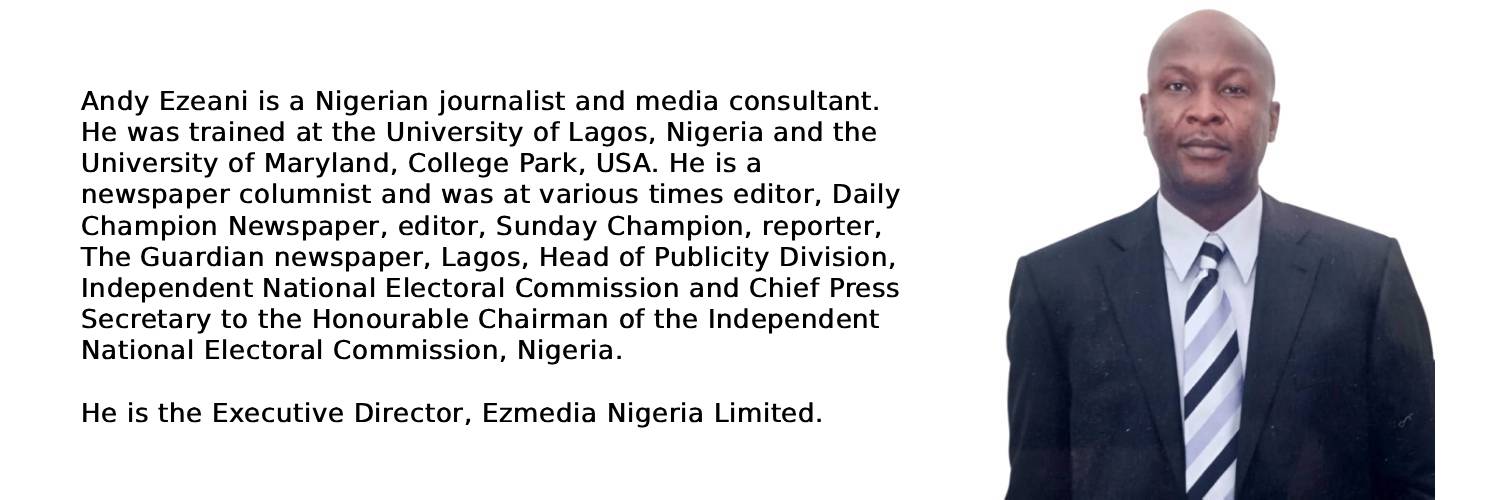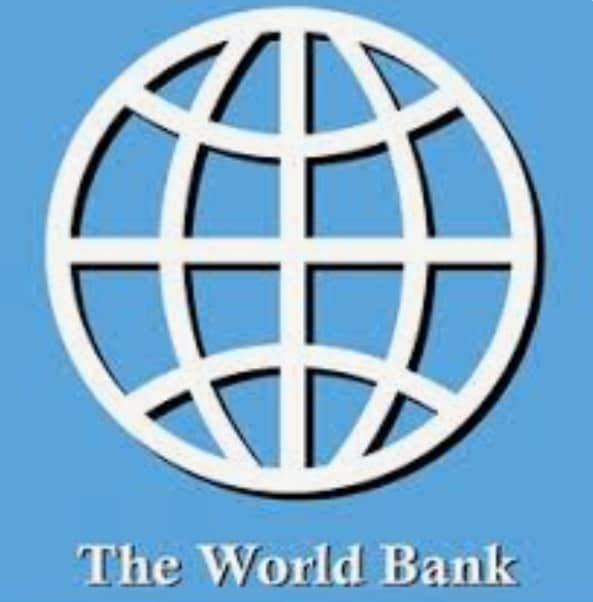World Bank launched a blitzkrieg of sorts, on Nigeria, last week. The campaign was quite intensive, creating an impression of a bank on a marketing drive, with an urgent target to meet. Maybe so.
Somehow, however, the bank came across as speaking from both sides of the mouth. That hardly helped whatever point it was pitching, but it does not seem to care.
There is ample reason for World Bank and its twin, the International Monetary Fund (IMF),to worry about Nigeria. For one, the country is their patient. The poor patient has been on intensive care in their clinic, for some months, having being brought in by its caretaker.
From all indications, the diagnosis appears to be wrong. Not surprisingly, the prescription seems off the mark. Consequently, the prognosis is not encouraging. The Bretton Woods consultants are, however, not the type to be swayed by any alternative logic or reality. Their prescription is like the law of the Medes, it is never changed.
Even in the various situations, where their motive and prescription are suspect, or even manifestly unhelpful, the Bretton Woods potentates hardly give a hoot. Once any patient comes under their roof, the standard prescription must be issued out.
Those bitter bills must be administered and taken. Many economies have been deformed or paralyzed, in the course of the treatment by the Bretton Woods clinic, but their prescription remains immutable.
Nigeria happens to have been wheeled in for this costly treatment.
That Nigerians are presently experiencing unprecedented pain and discomfort, courtesy of the strangulating policy prescriptions, prescribed by the Bretton Woods consultants and administered by Bola Tinubu, cuts no ice with the banks. What clearly bothers them at the moment, seems to be the concern that their patient may drop the prescriptions, or worse, escape from their trap.
What is the basis of their apprehension? Over the
last fortnight, or so, there has been mounting protestation from certain critical voices in the society, against the escalating pain of President Tinubu’s economic policies.
Significant individuals, among them, supporters that had hitherto kept mute, have been jolted to speak up, cautioning Tinubu and his government, of possible social uprising, should their economic policies that whimsically mete out pain without gains, persist. Even the National Assembly, largely complaisant towards Tinubu, has also expressed disapproval. Indeed, the House of Representatives asked the government to reverse the latest hike in the price of petrol, warning of possible social unrest.
The fear that Tinubu may cave in to this pressure, is the root of World Bank’s latest round of support Tinubu policy campaign. It is apparent that the bank’s resolute support for Tinubu’s policies, in the last few days, has only one motive; to reassure him that the Bretton Woods institutions are with him. In doing that, officials of the bank aim to ensure that Tinubu stays on line and dares not to step away from the prescription they handed over to him, no matter how much Nigerians writhe in pain. Such is the nature of the care and assistance the Bretton Woods institutions extend to developing countries that fall into their trap.
2024 marks 80 years since the Bretton Woods conference in New Hampshire, USA, created the two institutions; IMF and the International Bank for Reconstruction and developmentIBRD,(which came to be known as World Bank), with mandates that did not originally spell disaster for developing economies.
World bank, particularly, was designed to help poor economies in trouble, to regain life. The reality seems far now, from such idealistic goal.
In the latest edition of its Nigeria Development Update, which was released on October 17 2024, World Bank copiously highlighted statistics that unmistakably show that Nigeria is sinking deeper into poverty. The decline in the last one year is notable.
According to the World Bank report, 129 million Nigerians are languishing presently, in poverty. The report says the pathetic scenario marks a sharp rise in the percentage of the poor, from 40.1% in 2018, to a new height of 56% in 2024. Indeed, the bank’s studies indicate that over 115 million Nigerians are estimated to have hugged poverty since 2023. Note that.
In the accounts of the report, “more than half of Nigerians (51.1% of the population in 2023) are now estimated to live in poverty”
The report contended that poverty is more of a rural phenomenon. It added, however, rightly so, that “urban poverty had grown significantly, with 31.3 % of urban dwellers now living in poverty, up from 18 % in 2018”
So, what factors are conspiring to push Nigeria further down poverty line? World Bank says it is a combination of various shocks that include “COVID 19 recession, natural disasters such as flooding, growing insecurity, the high cost of demonetization policy in Q1 2023, high inflation and low economic growth”. True, but not the whole truth.
A further manifestation of Nigeria’s current poor economic condition was also highlighted by the bank, in the form of the travails of the local currency. The Naira, says the bank, is one of the three worst performing currencies in Africa. Nigeria’s legal tender is now in league with Ethiopia’s Birr and South Sudan pound, as sub-Sahara Africa’s worst currencies. That’s how low it has come.
It has not always been this way, but this is where Nigeria stands at the moment. In the explanation of the World Bank, Naira’s poor standing derives from continued increase in the demand for dollars, the limited dollar inflow in the face of Naira depreciation in recent months. It says “Naira [has] continued losing value” in the last year, resulting in “depreciation of about 43 percent as of end of August” 2024. The validity or otherwise of the policy of devaluation of the Naira was not touched.
So, what is to be done, in the face of the dire economic condition that is exposing Nigerians to unimaginable harsh economic reality? The World Bank’s advice is, at once, baffling and instructive. It acknowledges that the country is in a ditch. To get out of the situation, however, the bank recommends that Nigeria continues digging in.
Ndiame Diop, World Bank Country Director, speaking at the release of the Nigeria Development Update, acknowledged that the Tinubu government’s policies are hurting Nigerians. He recommends, at the same time, that the policies should be retained. He says, the policies will help Nigeria, in the long run, the same long run, by which time, economists had earlier said, we are all dead.
According to Diop, “reversing these reforms would be detrimental and would spell doom for Nigeria”. Although the policies are already spelling doom for lives and economic activities, it is obvious,that for the World Bank, one doom is different from another doom.
Speaking one week earlier, also in Abuja, at the 30th Nigerian Economic Summit, Mr. Indermit Gil, World Bank’s senior vice president and chief Economist, virtually directed the Tinubu government to go on with its economic policies, whatever the pains the people are going through. He drove the position of the bank home, when he declared,more like a diktat, without qualms, that Nigerians should go through the pains they are experiencing at the moment, for no less than 10 – 15 years. And what will be the gain at the end of the excruciating pains? Mr. Indermit said, the country will then become the leading economic power in sub-Sahara Africa.
It helps to put the World Bank’s policy prescriptions and assertions in perspective. About twelve years ago, in 2012, the Naira was healthy, exchanging at N163 to $1. In 2014, it was on the average N165 to $1. The price of petrol in 2012, per litre was N140. A general protest against that high price brought it down to N97. By 2016, the price of petrol rose to N145 per litre.
Now, even if the government of Nigeria in 2012,up to 2015,was guilty of committing the cardinal sin of subsidizing the price of petrol – in in the eyes of the Bretton Woods institutions – Nigeria still had a healthy foreign reserve of $44.3 billion. By 2015 when President Jonathan left office, the foreign reserve stood at $34.49 billion. Nigeria’s economy was the biggest economy in Africa too. And for all that,Nigerians did not have not die, or be subjected to unmerciful killing, from Bretton Woods prescriptions. So, what sense is there now, in people being subjected to the present unprecedented level of pain and torture, so that,hopefully,Nigeria will become (again)the leading economy in sub-Sahara Africa, a place it has been?
Mr. Alex Sienaert, lead economist for World Bank in Nigeria, added a touch of classical art of speaking tongue in cheek, on the critical subject of Nigeria under the spell of the Bretton Woods twins, when he spoke at the public forum of the bank in Abuja last week. Said Mr. Sienaert; “I am in a position of having been the lead economist at the World Bank in Nigeria on economic policy issues…and I just want to tell you that I’ve not seen any conspiracy within the World Bank or otherwise, to keep Nigeria down”.
If there is any such conspiracy, will Mr. Sienaert not tell Nigerians, the pious man he is?



1 comment
Being a Nigerian in Nigeria in a dispensation of leadership vacuum is a hard time. Through greed and sheer visionless representation, we made ourselves a figure of ridicule. This nation is blessed with natural resources, human capital, and a favourable climate to be a global economic hub with a GDP of $3 to $5 trillion. We have made a caricature of ourselves. Where do we go from here? Fix the quality of our representation in governance with people who can intellectually engage development policy in our economic historical context.